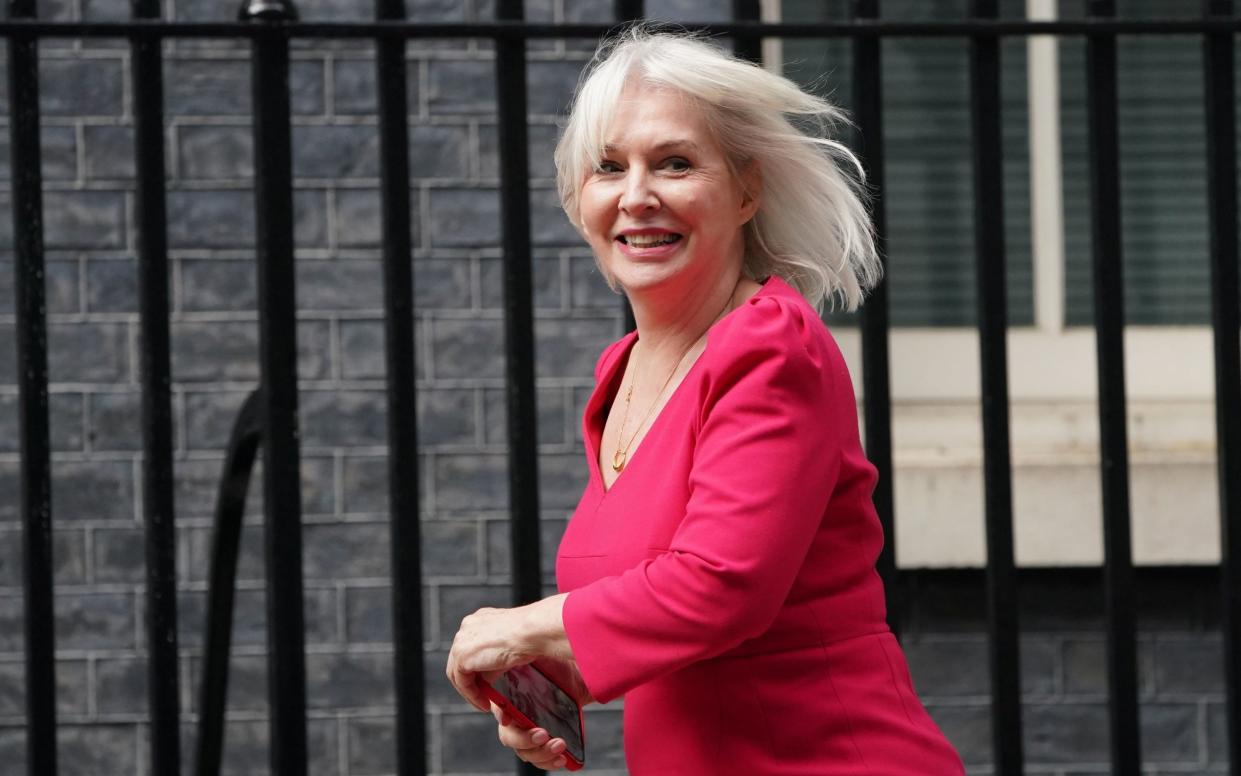Nadine Dorries planning a war on ‘crackpot’ BBC programming

Nadine Dorries, the new Culture Secretary, faces a battle with the BBC over the corporation’s political bias, after the director-general said he wants “grown up” dialogue and dismissed her previous comments as a “distraction”.
Ms Dorries has previously called the BBC a “left-wing”, “hypocritical” and “patronising” organisation.
In her new role, following Boris Johnson’s reshuffle, she is responsible for managing the Government’s relationship with the BBC and the future of the licence fee.
Ms Dorries’ Twitter account provides an insight into her views on the corporation and its political programming.
“The BBC believe that anyone interested in politics wants to watch older men in grey suits do the presenting,” she wrote in April 2015.
Six months later she added: “[The] BBC needs to up its game in political presentation. Dull, boring, male and ageing wig-wearing men losing the plot don’t cut it anymore.”
Last year, while serving as a minister in the Department of Health, she said: “The BBC favour strident, very left-wing, often hypocritical and frequently patronising views that turn people away.”
Tim Davie, the BBC’s director-general, said he expected a “bit of theatre” from Ms Dorries but hoped the pair could work together.
“We are yet to make contact but I’m really looking forward to meeting her,” he told the RTS Cambridge Convention.
“I think it’s too early to make too many conclusions. We need a really serious, grown-up dialogue with Government. It’s an incredibly important topic.
“There will always be a bit of theatre but we will sit down and have a proper dialogue around the BBC, and I look forward to it.”
The emerging row came as John Whittingdale, Mr Johnson’s media minister, was sacked from his post.
Mr Whittingdale has been critical of the BBC and has supported the privatisation of Channel 4.
He has also repeatedly suggested ministers should explore a new funding model for the BBC – replacing the licence fee with a subscription model akin to streaming services like Netflix and Amazon Prime.
While in public both Mr Whittingdale and Olive Dowden, who Ms Dorries has replaced, have presented themselves as advocates of BBC reform, both men are understood to be privately supportive of the corporation.
Another of Ms Dorries’ tweets suggests she may be willing to take action on BBC local news services to protect commercial newspapers and websites.
“Have and will fight to protect local papers from space dominance by national organisations such as the BBC,” she wrote in 2014.
One of her colleagues on Thursday suggested she will also want to take on the corporation’s sometimes left-field programming, and understands culture because she is a bestselling author.
Ben Wallace, the Defence Secretary, told Sky News: “What’s great about Nadine Dorries is that she produces culture that people buy and actually want to see, rather than some of the more crackpot schemes we’ve seen being funded in the past by taxpayers money.
“I think she’ll bring realism to it.”
Ms Dorries is the author of more than a dozen novels, and appeared on the reality television programme I’m a Celebrity...Get Me Out of Here in 2012.
Mr Wallace dodged a question about Ms Dorries’ stance on gay marriage – which she voted against, but later regretted.
“Culture, media and sport is a very, very broad range of industry… I think Nadine will be a great Secretary of State,” he said.

 Yahoo News
Yahoo News 
